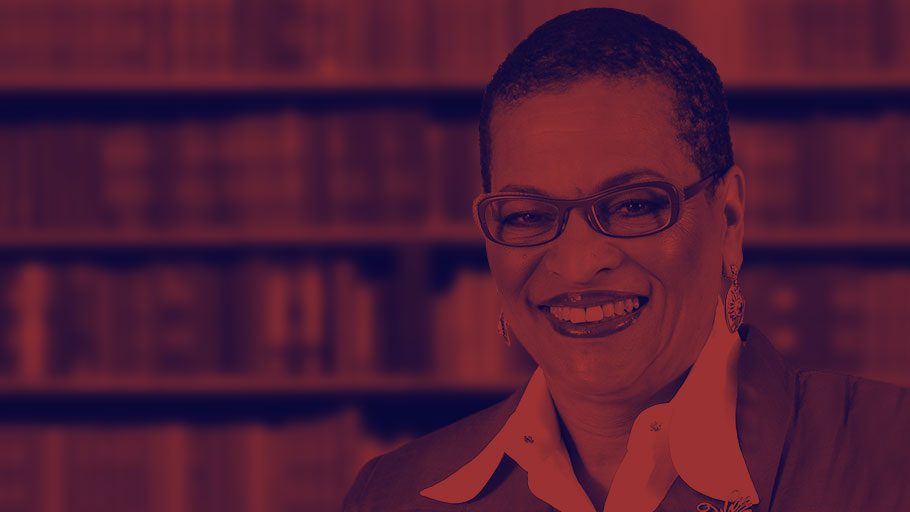African American students achieve at a different level than white students. Test scores are lower, as are high school and college completion rates, and the number of African Americans attending four-year institutions is falling. The rate of African American suspensions and expulsions from K-12 schools is higher than that of other groups. By almost any metric there are gaps between African American students and white or Asian students (Latinos achieve at about the same rate as African Americans).
Why does this happen? The late sociologist John Ogbu hypothesized that the gap was the result of young African Americans thinking that learning was “acting white”. His theory was batted around as if it were fact, even when Duke economist William Darity refuted the Ogbu theory. Why? Because it fits somebody’s stereotype to describe African American youngsters as culturally alienated from the mainstream, so much that they eschew the very institution that could be a bridge for them into the middle class.
Give the history of African Americans and education; it is hard to swallow these stereotypes. Several states had laws on the books to prevent African Americans from learning to read and write in the pre-civil war period. Both white and black people risked flogging, cash fines and other penalties for “teaching a slave to read”. Millions of African Americans sacrificed for the right to be literate, and ensured that their children would also have opportunities by baking cakes, frying chicken, and raising a few dollars to get to college by whatever means necessary. At the beginning of the 20th century, the only colleges open to African Americans were historically black colleges and universities, and we went despite the obstacles. Our presence rejected the notion that learning was “acting white”. In fact, we were acting learned and literate.
Still, it is in the interest of some to continue that stereotype. You’ve heard that adage that if you don’t want an African American to know something, just hide it in a book. That kind of ignorance is the very reason that African American people were able, during the Civil War, to spy on Confederates who thought they were only illiterate enslaved people. That is why Mary Ellen Pleasant was able to eavesdrop on conversations on stock and turn them into wealth. Those who write about the achievement gap ought not underestimate African Americans.
Where does the achievement gap come from, then? It comes from the opportunity gap. The average African American household earns $31,000 a year, compared to $51,000 for whites. $51,000 can buy a lot more opportunity than $31,000 can. If income determines housing clusters, neighborhoods with a $51,000 mean income have better schools and more involved parents than the $31,000 neighborhood does.
Closing income gaps closes opportunity gaps, according to a Ford Foundation-sponsored book written by Dr. Linda Darling-Hammond, an Obama education advisor. She says poverty and segregation means that some students attend schools that have fewer resources than others. Indeed, inner city high schools are less likely to offer Advanced Placement (AP) or International Baccalaureate (IB) classes. Sometimes when these courses are available in suburban high schools, African American students are discouraged from taking them.
Dr. Ivory Toldson, a professor at Howard University and a contributor to the Root also refutes the notion that African American students think learning is “acting white”. Most African American students, he says, are interested in attending college but may not because of cost factors. He also says that academic support should be provided to all students, and that the way to close achievement gaps is to “reduce racial disparities in income and to increase equity and inclusion in education.”
For a great deal of students the issue is not “acting white” but being connected to educational options and outcomes. One of the more important factors in student achievement is parental involvement, yet many parents find themselves “too busy” or too uninformed to interact with teachers. One study says that parents don’t necessarily have to help with homework, but simply to reinforce that homework should be done, and to be inquisitive about it. Unfortunately, many parents, frustrated with the school system, write it off. Further, too many of our community organizations don’t sufficiently emphasize education, or if they do, don’t get into the “down and dirty” of it, preferring to raise much-needed scholarship funds than to take a young person by the hand and guide them through next steps to education.
The majority of African American students are still first-generation college students. They aren’t always sure what next steps are, and they often need help maneuvering through a system with which their parents have no familiarity. Too many smart students don’t have the parental and societal support they need to achieve. The United States falls way behind the rest of the world when we don’t value students who have the potential to be high achievers, regardless of race or ethnicity. We further disservice ourselves as a nation when we fail to value those who have the intelligences to change our world.















